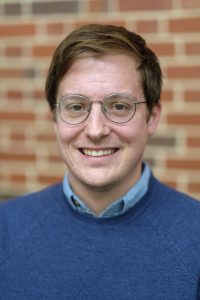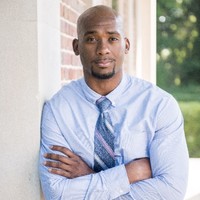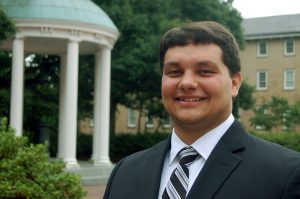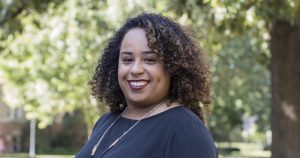Sonyia Turner
DFI Community Revitalization Fellow, Master’s Candidate, City and Regional Planning, UNC-Chapel Hill
“Real estate developer,” said Sonyia Turner, when asked what she wants to do next in her career. She has clearly given this a lot of thought. Since graduating from N.C. State with a degree in architecture, Turner has been working in fields related to community development to try to hone her skills and find her passion.
Turner spent eight years with King’s Park International Church in Durham as administrator and later as director, a position extremely attuned to the community and congregation it serves. She executed a couple of largescale design projects for the organization. “I like the fun of project management. I enjoy moving from idea to full creation of something,” said Turner. “I think that comes from my architecture background. I like the big picture, and I get energized by tangible bite-sized pieces.”
It’s no surprise, then, that she was drawn to the art and science of city planning. At an open house for UNC-Chapel Hill’s Master of City and Regional Planning program, Turner came across representatives of DFI. New to the idea of working with local governments, Turner said she was intrigued by the prospect of using public investment to catalyze economic development.
She took Tyler Mulligan’s community revitalization course; she enjoyed the rigor and cared that the work impacted actual clients. Now in her final semester of her degree program, Tuner has worked on more real estate projects. “The work that DFI does is extremely catalytic, not only for the communities but for the individuals who work there,” said Turner. She helped identify a potential location for a health center in Kinston, and a predevelopment analysis and master planning process for 100 acres of raw land in Wake Forest, among others. “It broadened my horizons…The work is hard and weighty, and it will impact generations.”






